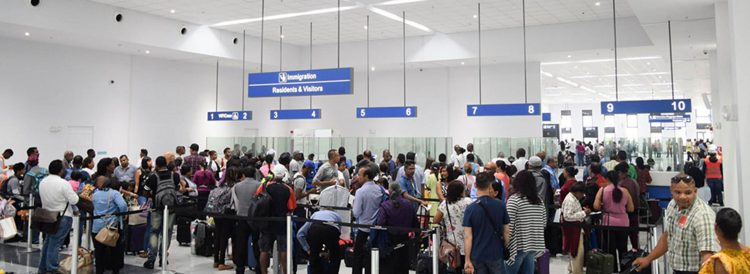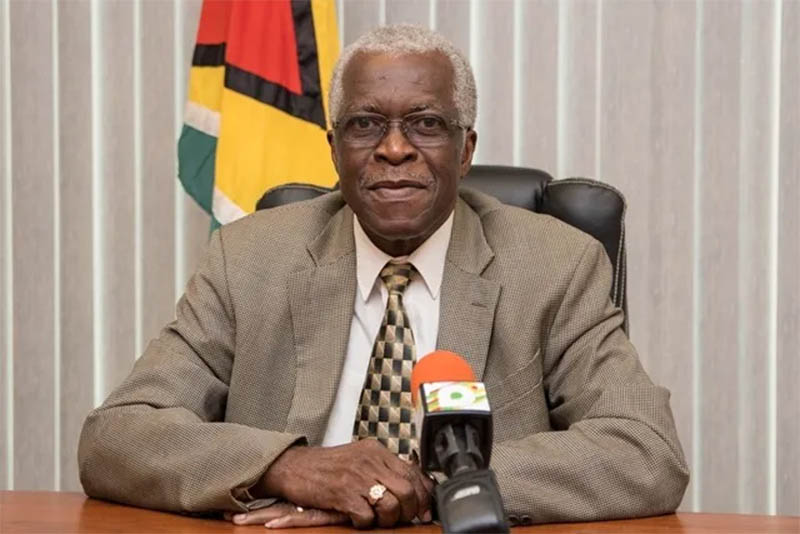One indicator of the extent to which Guyana is increasingly becoming a ‘destination of choice’ amongst assorted travellers, particularly potential investors, is the frequency with which, these days, an assortment of air travel service providers are seeking to engage the authorities here on extending their services into the local market.
Just over a month ago, Director General of the Guyana Civil Aviation Authority (GCAA), Lieutenant Colonel (Ret’d) Egbert Field, announced during an exchange with another section of the media that according to a report, “six new airlines are showing interest in starting operations” here.
External airline interest in placing countries on their travel routes is customarily used as a barometer for measuring foreign interest in travelling to that country. The recent disclosure by the GCAA boss would therefore appear to enhance the otherwise widely touted view that Guyana, primarily on account of the prevailing oil & gas-related investor interest in the country, is what the travel and tourism industry customarily refers to as a favoured travel destination.

Interestingly, however, the media report on Mr Field’s engagements with the named airlines gives little away beyond reportedly saying that Guyana is “in discussions with some other entities, some other airlines” and that the numbers “are in the region of maybe five or six airlines,” arising out of the “uplift predicted out of Guyana” and the fact that “airlines are seeing this so they are approaching the Guyanese administration to see how they can get approval.”
The implied caution on the part of the GCAA in the matter of granting clearance to external airlines to bring their business here may well have to do with, at least in part, some of the less than uplifting experiences that the country has had with its international air travel regime.
Time was when, for various reasons, international airlines steered clear of Guyana, primarily (though not exclusively) on account of what was seen as an unprofitable market, a circumstance that created travel ‘nightmares’ for travelers getting either in or out of Guyana. This, understandably, had a significant socio-economic impact on the country.
The oil & gas-related investor and, to a lesser extent, tourist-related interest in visiting Guyana has changed all that and judging from the number of engagements which the GCAA is reporting, it seems as though airlines are now gravitating towards Guyana like moths to a candle flame. As international air travel has become increasingly popular, new services have emerged while old ones are reinventing themselves. One popular view in the industry, however, is that the rush to cash in on an expanded travel market has been attended by the compromising of service standards, particularly among some of the reinvented and new services.
The extent of Field’s caution with regard to excessive disclosure on the airlines with which Guyana is currently ‘talking,’ almost certainly arises out of the country’s recent considerable history of sub-standard service that has impacted customer perceptions of Guyana as a travel destination and on the image of the country as a whole. In relatively recent years some of the agreements with international airlines have collapsed spectacularly in the wake of uproarious passenger protest over a range of issues including booking anomalies, delayed and cancelled flights and baggage delivery delays. These, needless to say, have impacted on revenue accruing from the sector and on traveler perception of Guyana as a whole.
Nor is just the ‘small time’ services with which travelers appeared to experience challenges. In the course of his recent disclosure Field appeared to step away from any robust criticism of the global air travel giant, American Airlines, which arose out of a statement released by the Ministry of Tourism regarding what it reportedly said was the number of cancellations and delays chalked up by that airline. Field reportedly responded to the observation by asserting that American Airlines had reduced its flights “during the height of the pandemic.”
It would certainly appear that there has been some relatively recent movement on the part of the authorities here in granting the ‘green light’ to new airlines to ply their trade here. Field reportedly named Skybus Airlines, Inter-Caribbean Airways, and FlyAllWays as services that have begun to operate here. If previous experience would have caused the authorities here to raise their due diligence scrutiny levels, experience would surely have taught us that the proof of the pudding is in the eating. Field, for example, reportedly alluded to the problem of external airlines ‘pulling the plug’ on their operations without notice, abandoning their refund obligations to passengers who did not benefit from the services for which they paid.
With the level of international interest in Guyana having significantly heightened in recent years, the GCAA Head will be only too well aware of the likelihood that the number of airlines wishing to add the country to its list of destinations is likely to increase, going forward. Contextually, he alluded to the requirement of airlines satisfying bonds as a prerequisite for servicing the Guyana route.
While the Ministry of Tourism has already weighed in on the delinquencies of some of the airlines servicing the Guyana route, Field appears to be seeking a more assertive role on the part of the local “consumer regulatory bodies” in holding airlines’ feet to the fire where service delivery obligations and standards are concerned.








